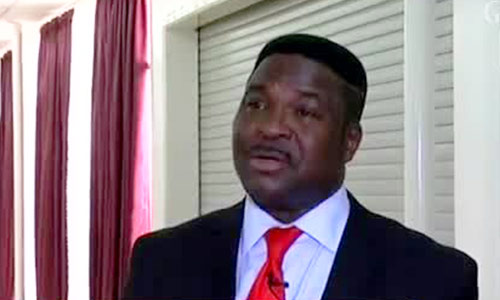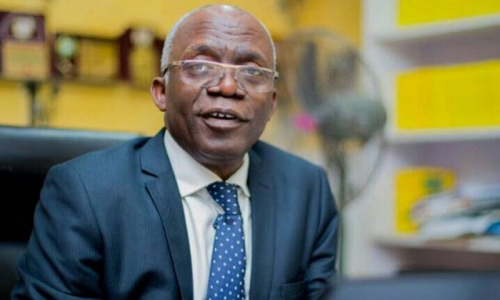Is Orosanye Or Boss Mustapha’s Report Jinxed?

By Muiz Banire SAN
In the past two years, I have frequently delved into the Orosanye Report, both in my writings and discussions, reaching a point where I believed I had exhausted my commentary on the subject. Yet, here I am, compelled to revisit it once more, driven by the Yoruba adage that suggests the persistence of an issue until it is resolved.
Ti ina o ba tan ni aso, eje ko ni tan ni eekana literally suggesting the persistent presence of lice on the head will consistently stain the fingernails with blood. In my intervention on 22nd September 2022 titled Cost of Governance: Nigeria’s Albatross cost-of-governance-nigerias-albatross , I critiqued the unsustainable cost of governance in Nigeria highlighting the relevance of Orosanye’s Report. In the July 6, 2023 edition, I fully engaged the report under the banner of Mr. President: X-raying Orosanye Report for Implementation mr-president-x-raying-oronsaye-report-for-implementation . In the discourse, I observed that, “…despite drawing the attention of the (Buhari) administration to the Stephen Oronsaye Report on the restructuring of government agencies, and the attendant burden of the cost of governance, the administration never deemed it fit to seriously consider the report for implementation.
The best effort made was lip service through promises of implementation, which never materialized……The report, therefore, ended up being consigned to oblivion by the administration.
With the ascension of the new leadership of President Bola Tinubu, I promptly revisited the issue, calling on Mr. President to confront the need for the implementation of the report……. I am yet to concretely hear any pronouncement on the report, except for an unrelated news item that some parastatals and agencies might cease to be beneficiaries of statutory allocations in a period of time……. I believe that the current administration still enjoys the political and general goodwill to muster the implementation of the Oronsaye report.
The urgency involved lies in the reality that once the boards and managements of the statutory bodies are populated, it will be difficult, if not impossible, to implement the report again. This will signal the same fate and pattern as in the past administrations that the report has suffered. Hence, since the bodies are yet to be constituted, it is exigent and crucial that the report be implemented vis-a-vis the affected bodies, so that the eventual occupants will not constitute a clog to the implementation of the report”. Despite the admonition in that edition of my column, and noting that no action had been taken three months thereafter, on November 23, 2023, I was prompted under the caption, ‘Cost of Democracy vs. Dividends of Democracy https://sunnewsonline.com/cost-of-democracy-vs-dividends-of-democracy/ ’ to agitate the subject again. Undaunted by the government’s lackadaisical attitude, I reiterated my demand for the implementation of the Oronsaye Report and opined as follows: ”For the umpteenth time, I say we need to revisit the Oronsaye report for immediate implementation.
There must be an immediate reduction in the number of agencies and parastatals we are nourishing. This is not limited to the central government but all levels of government”. Now, eight months later, we are hearing murmurs that the federal executive council has approved the implementation of the Oronsaye Report. As exciting as the news ought to be for lovers of good governance, not much was said about the manner and mode of implementation, including the scope. The substance of what was approved remains a mystery. This inevitably has given rise to speculations on the affected agencies across the country. There is hardly any official to clarify the state of things officially, not even my good friend, Hadiza Bala Usman, who is the Special Adviser to the President on Policy Coordination. The only purported list seen was that allegedly reeled out by one Senior Special Assistant to the President on Print Media, Abdul Aziz Abdul Aziz.
The list consists of those agencies to be scrapped, those to be merged, those to be subsumed, and those to be relocated. To this, I shall return in due course. If that list attributed to the said aide of the President as reported in the Premium Times of February 27, 2024, is correct, it then implies that confusion has started reigning as predicted. Some of the agencies alluded to therein are recently staffed with new management, for instance, the National Agency for the Control of AIDS (NACA), which, just a week ago, on 14th of March 2024, was staffed with a new Director-General in the person of Dr. Temitope Ilori.
The Agency, according to the purported released list, ought to be merged with the Centre for Disease Control in the Federal Ministry of Health. A few days ago, the Governor of Borno State, Prof. Zulum, was equally reported to have confidently stated that the merger of the Army University with the National Defence College will most likely be reversed by the President. Just two days ago, the Almajiri Education commission leadership which is meant to be submerged is being populated management wise.
Where do we go from here then? How do you now rationalize them? With the said development, it seems not probable that the government is truly ready for any implementation. As I predicted, it is most unlikely that this government will succeed in implementing the report, as it was not grounded in reality. Aa tii ko ifa nle, ifa ti n se (the augury beads have not been lifted off when its predictions are already fulfilled). I already warned months back that once the agencies are populated either by way of the board or management, it becomes difficult, if not impracticable, to implement the Report again.
Now, if we assume the said list to be correct, certainly it is a far cry from the Report and the White Paper released by the Jonathan administration. It shows no seriousness on the part of the current administration to address the challenge of bloated civil and public service. It seems that we are just paying lip service to the issue of reducing the cost of governance, as announced by my brother, Mr. Bayo Onanuga, the Special Adviser to the President on Media and Strategy. As a disguise, an 8-man committee to action the implementation was set up, consisting of the following officials of state: the Secretary to the Government of the Federation, the Head of Civil Service, the Attorney General and Minister for Justice, Minister for Budget and Economic Planning, Director General of the Bureau of Public Service Reform, Special Adviser to the President on Policy Coordination, Special Assistant to the President on National Assembly. Although a period of 12 weeks was given to execute the assignment, as the Yoruba proverb goes, oju ti o ba ma ba’ni kale, kii fi aaro se ‘pin ‘the eyesight that will last till the dusk, oozes no rheum at dawn’.
There is no indication of any concrete step being taken by the committee, at least strategy-wise. Bi eeyan ba fi odun mewa pile were, odun wo lo to fe sinwin which literally translates to mean over-preparation for an event is a procrastination of its performance.
The Committee’s microphone appears to be off before take-off. It will be remembered that under the Jonathan administration, a White Paper was issued in 2014 as a precursor to implementation, but it never saw the light of day. After much pressure on the Buhari administration, a feeble attempt was made through the office of the Secretary to the Federal Government to effect the implementation, inclusive of the review to the year 2022, but again, as soon as the pronouncement was made, nothing was heard thereafter. Although I learned from the grapevine that an updated report to 2022 was made by the Boss Mustapha’s Committee, it has been somewhere gathering dust until the resolve of the current administration to dust it up.
I remember raising the alarm that the effort under the Buhari administration would be sabotaged, but the alarm was ignored. Ultimately, that became a truism, and the attempt became futile due to corruption and compromises. As if the above observations were insufficient, the Federal Capital Territory Administration opted to operate with full-fledged State status, with all the paraphernalia attached, under the same Presidency. With the new bogus administrative structure rolled out, it signals the jettisoning of the idea of cutting the cost of governance. Due to the poor communication strategy of this administration, little did we know that the Tinubu administration is actually implementing the Boss Mustapha’s report of 2022 rather than the stale Oronsaye report of 2012 and its culminating white paper of 2014.
The fact of this birthed the criticism of Mr. Femi Falana and others that the report being implemented is out of tune. Although the Federal Government believes about 800 agencies and parastatals exist, this is extremely doubtful. Assuming without conceding it to be correct, Nigeria does not need more than 150 of such agencies. Let the others revert to the parent Ministries as units or departments.
If bureaucracy is a challenge, let us address that directly. A ready example is the multiplication of tertiary institutions under the Buhari administration. Tertiary institutions were established along the line of the desires of public officials and not needs, notwithstanding the fact that the federal government continues to confess its inability to effectively fund higher institutions. Most tertiary institutions in the country are shadows of themselves when the government cannot even bear the payment of staff salaries. Little wonder that a comfortable number of the so-called tertiary institutions are modified secondary schools. Again, I have had cause to comment on this elsewhere (See my columns in the Daily Sun of 2nd December 2021 “Tertiary education and the future of Nigeria: Another perspective! https://www.sunnewsonline.com/efcc-chair-and-unnecessary-controversy” and 9th December 2021 Secondary education and culture of bullying https://www.sunnewsonline.com/secondary-education-and-culture-of-bullying/ ). Ideally, one would have advocated for the proper taking of inventory of the agencies and parastatals before actioning the rationalization, but for the fact that it will turn out to be another stumbling block. Besides, the government itself cannot account for the number of existing agencies and parastatals, just like it could not account for the barrels of crude oil produced nor the quantity stolen. Working with whatever figure they have, it would have been expected that the list be released for public consumption immediately.
Even if we succeed in implementing the updated report, it is still a far cry from what is required to tame the exponential cost of governance in the country. A situation where the recurrent expenditure of the country is over 70 percent of the capital expenditure stultifies the country’s growth. It is simply a mismatch. Nigeria must aspire to have a comfortable overbearing capital expenditure to progress; otherwise, the country is clowning. Finally, to put a permanent solution to this recklessness and ensure that we do not only have a repeat of the burgeoning agencies and desire for a committee like Oronsaye, or that of Boss Mustapha, a permanent mechanism to forestall future occurrences must be put in place.
Should any special purpose vehicle be necessary to be established in the future, the terminal date must be specified in the enabling instrument. There must be a permanent unit in the office of the Head of Service whose responsibility is coordination of the agencies and must always be consulted in the attempt to create any new agency or special purpose office. Except there is a certificate from such office that it is necessary and could not be accommodated under existing structures, no creation must be embarked upon. If any special purpose is to be used, the office must monitor the closure by the terminal date, and no permanent staff or structures acquired for that purpose. Redeployment and sharing of facilities must equally be encouraged. So far, in my view, the government seems to lack the political will and courage to implement the report and its offshoot. In fact, it appears that no democratic government, for various reasons, has the capacity to implement the report, much less updating the rationalization of the agencies towards the reduction of the cost of governance. Truth, it is said, has no shelf life; truth does not expire and is timeless.



